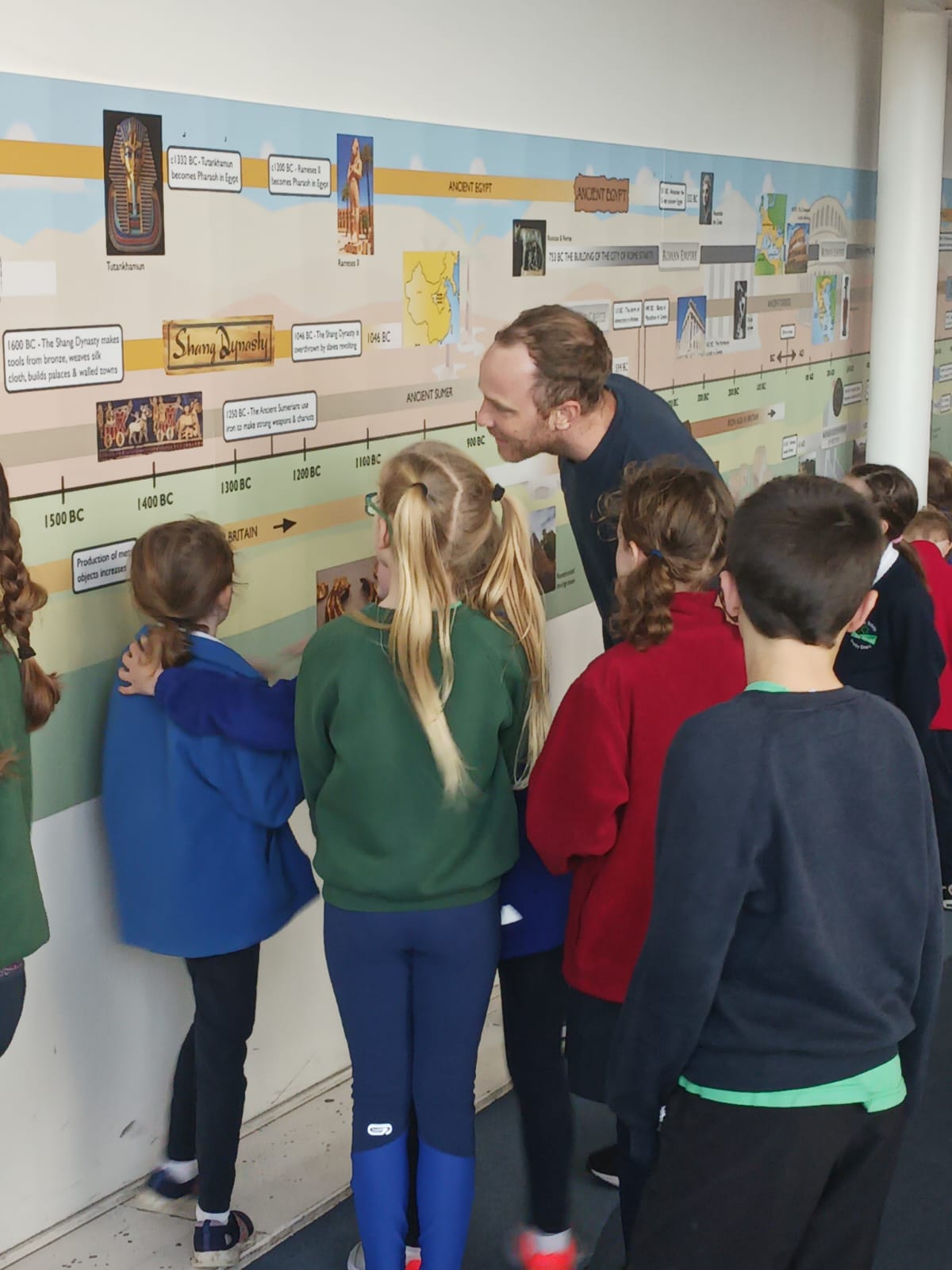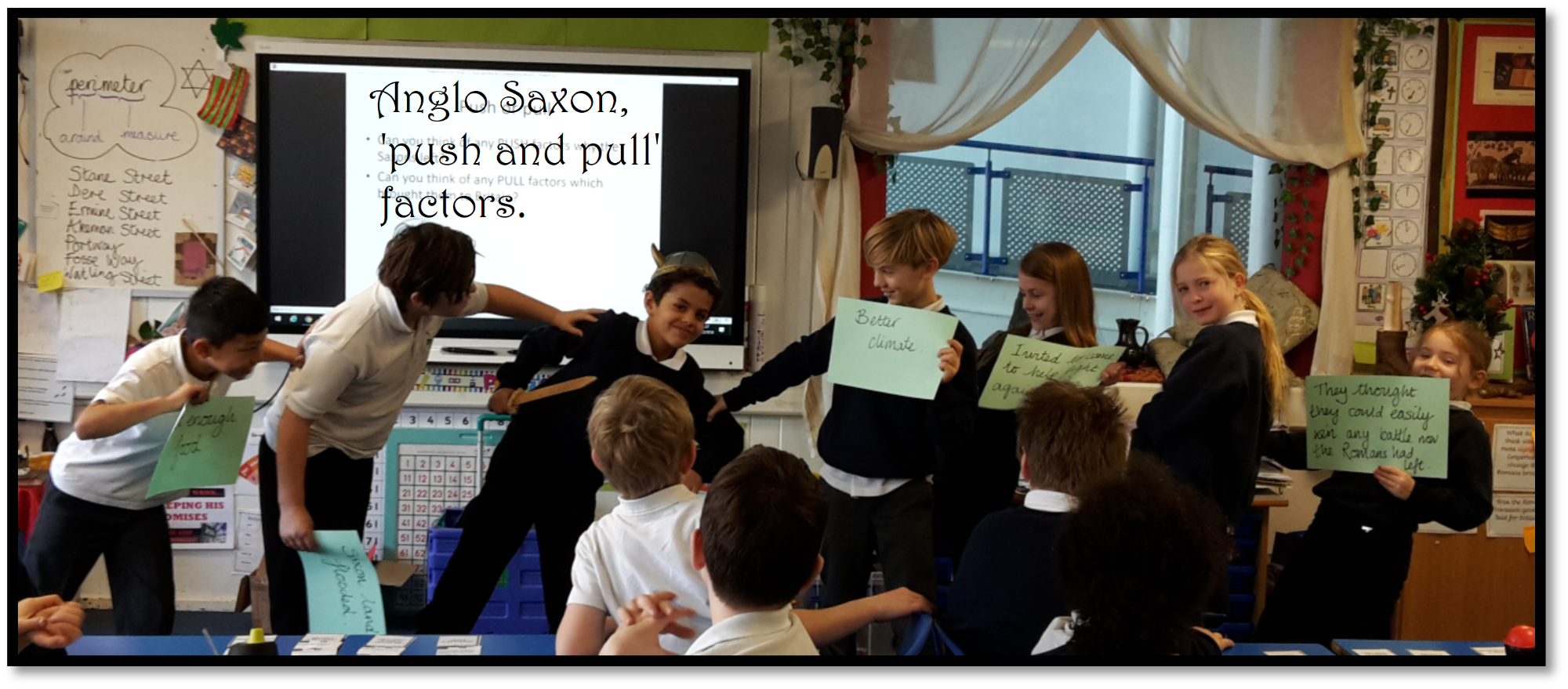History
The more you know about the past, the better prepared you are for the future. - Theodore Roosevelt

The subject of History at Holy Trinity Pewley Down School, the study of the past, aims to give our children the knowledge and skills needed to ‘embrace the future with hope and confidence.’ With the understanding of how and why events happened, cultures evolved, technologies emerged, civilisations rose and fell, comes a self-assurance to recognise mistakes and successes of the past, and predict outcomes, with the skills to judge wisely and impartially.
Intent - The vision
The purpose of history is to explain the present- to say why the world around us is the way it is. - Michael Crichton
If the study of Geography tells us how the world works, then its ‘humanities’ partner, History, tells us why the world works as it does. Our objective then, is to consider, investigate and come to conclusions about the why. Besides the essential subject knowledge and chronological understanding garnered through the study of historical eras, our intention is also for the children to think like historians: to develop the skills of interpretation and enquiry, while considering the key historical second order concepts. Our aim is to kindle children’s curiosity and ‘zest for learning’ through an exciting curriculum, including historical investigations, special days in school and educational trips.
Implementation - How we achieve our goal
We study history not to be clever in another time, but to be wise always. - Marcus Tullius Cicero
The study of History at HTPD begins in Early Years, when Reception explore seasonal changes in the school grounds, and share stories and experiences from their own past, then builds through the key stages through immersive history topics. We employ a cross-curricular approach, blending all subjects, wherever possible, with the particular era studied: Year 4 children consolidate their understanding of area and perimeter by designing a Roman villa during their ‘Invaders’ topic, Year 3 children study the science of transferring water by building an Archimedes screw during their ‘Ancient Greece’ topic. During History sessions, the children learn to think like historians by examining primary and secondary evidence, interpreting what they discover, making suppositions and coming to their own conclusions. The second order concepts of 'cause and consequence', 'change and continuity', 'similarity and difference', and 'historical significance’ are at the centre of these enquiry sessions, giving the children the tools they need to focus on and interpret the evidence. A cohesive narrative across the topics covered, referring to prior knowledge and eras studied, encourages the children to see links between historical periods and leaps in human development, while securing their sense of chronology - for events in Britain and the wider world.
The diversity of our nation is a principal consideration when looking at the past. The blending of races and cultures has helped us to learn and grow into the unique nation we are today, and whether it’s learning about Nelson Mandela’s influence on the abolition of apartheid in South Africa in Year 1, Marcus Aurelius’ African regiment on Hadrian’s Wall in Year 4 or studying Colonisation and Slavery in the 17th and 18th Centuries in Year 6, we endeavour to pay tribute to the various peoples involved in the building of Britain. Special days at HTPD further engage the children with historical periods by allowing them to ‘imagine the journey in another’s footsteps’. The Year 5 late-medieval topic that follows the changing power of the monarchy, culminates in a Tudor banquet, attended by Elizabeth I, with the children providing the food and entertainment, while Year 6 recreate the 1851 Great Exhibition as a finale to their ‘Time for Change’ topic. Historical and educational trips are an essential way to engage with the past, allowing the children to see artefacts and buildings first-hand, and increase their understanding of people and their stories. A trip to Butser Ancient Farm brings Iron Age Britain to life for Year 4, while Year 2 witness the results of the re-building of London in 1666, when they visit St Paul’s during their study of the Great Fire. By studying local history, our children can begin to understand their own part in history, their hometown’s place in larger events. Year 3 discover this when they spend the day as evacuees as part of their World War II topic, visiting significant places in Guildford and hearing the stories associated with them. History at HTPD is a process of discovery, of linking ideas and questioning, of imagining and recreating, leaving the children with a secure foundation of knowledge and understanding to which they will anchor their future learning.
Impact - How do we know our vision has come to fruition?
We are not makers of history. We are made by history. - Martin Luther King Jr.
As our children progress through their primary school years, they will build a solid chronological understanding of Britain, while comparing various events and civilisations from the wider world. By the end of Year 2, the children have begun to construct their knowledge of time and have interspersed their internal timeline with the eras they have covered. They are developing their understanding of ‘past and present’, and noticing the ‘similarities and differences’ of ways of life between them. They are beginning to see how their personal history fits with that of the generation before, and how their local area fits into the history of these islands.
By the end of Year 6, our children have added a wide selection of people, places and events to their timeline, and they understand how all these eras have threads in common: technology, communication and writing, trade, movement and migration of people, medicine, religion and government. They have pored over evidence, weighed and sifted it, discussed and supposed about it, experimented with it, and have come to their own conclusions about why the world works as it does. They see their own place in history and the possibilities for their futures.
There is no life that does not contribute to history.- Dorothy West

